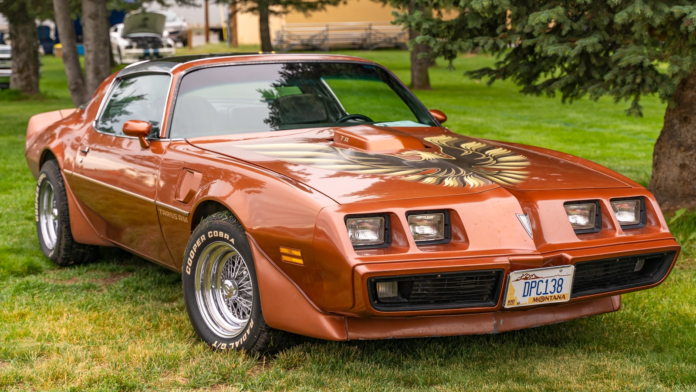The third generation of Pontiac Firebird, which ran from 1982 to 1992, was notable for a distinct lack of power — a lower floor if you will. The elimination of Pontiac’s V8 engine from its base Firebird by General Motors in 1981 led to some creative solutions but an overall drop in performance for much of the 10-year period. The old saying is that “necessity is the mother of invention,” a phrase Pontiac’s designers took to heart when figuring out how to work around limitations introduced by a more environmentally-conscious country and the aforementioned dropping of big, beefy V8 engines from the Firebird line.
A complete redesign was called for and delivered in 1982. The Firebird’s new body shape was born in a wind tunnel, providing better aerodynamics than ever before. Five hundred pounds of weight was shed in the new design. The windshield was sloped to a whopping 72 degrees, and the pop-up headlights were in line with some of the finest in ’80s design style. And a 2.5-liter inline six-cylinder engine was offered, which got a gas-sipping 32 highway miles per gallon at 88 horsepower.
Fortunately for muscle car aficionados, V8s were still available, but limitations put upon Pontiac — and all automakers — by governmental regulations meant a drop in overall power. A 5.0-liter V8 was the largest the manufacturer could offer, and it wasn’t until late in the third generation that engine output began to fall in line with some of the previous generations’ offerings.


